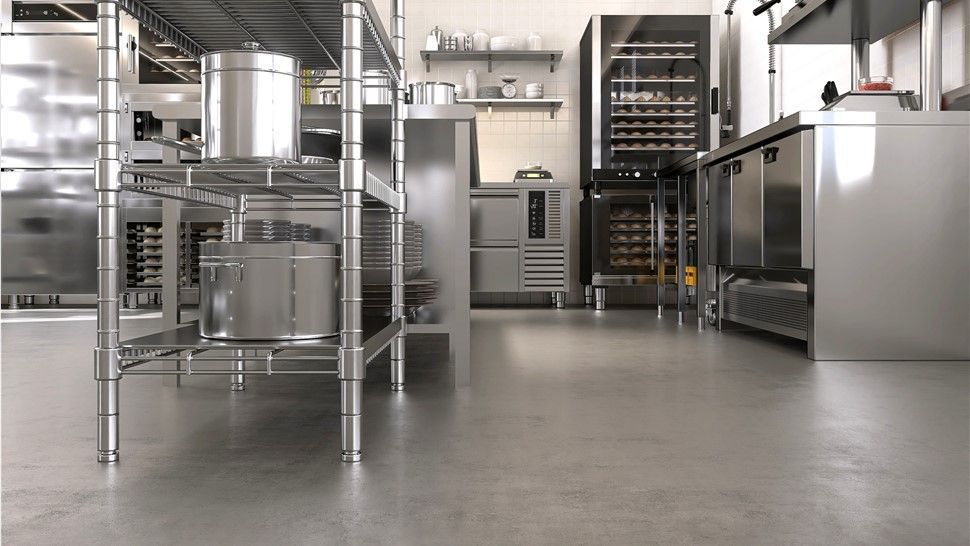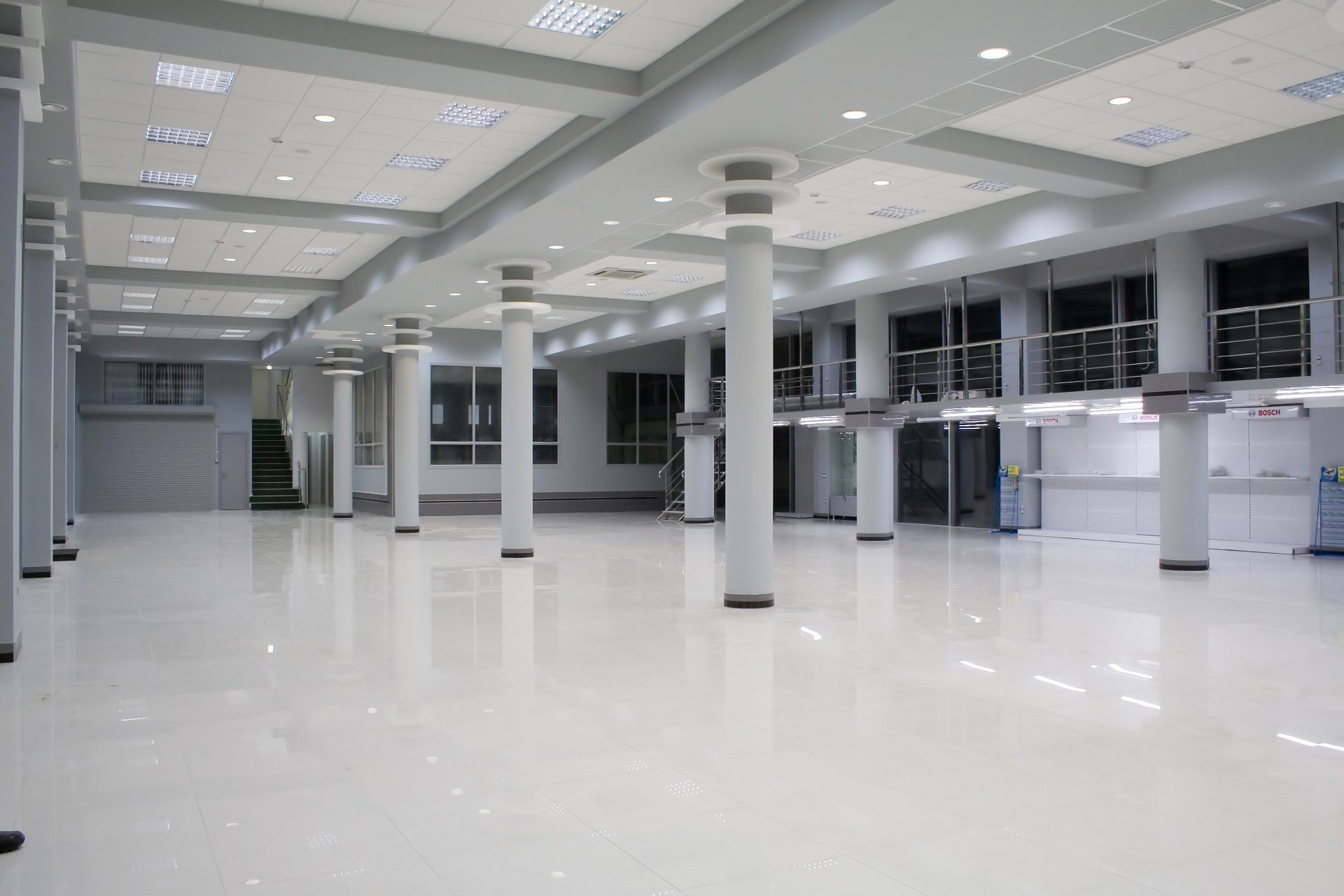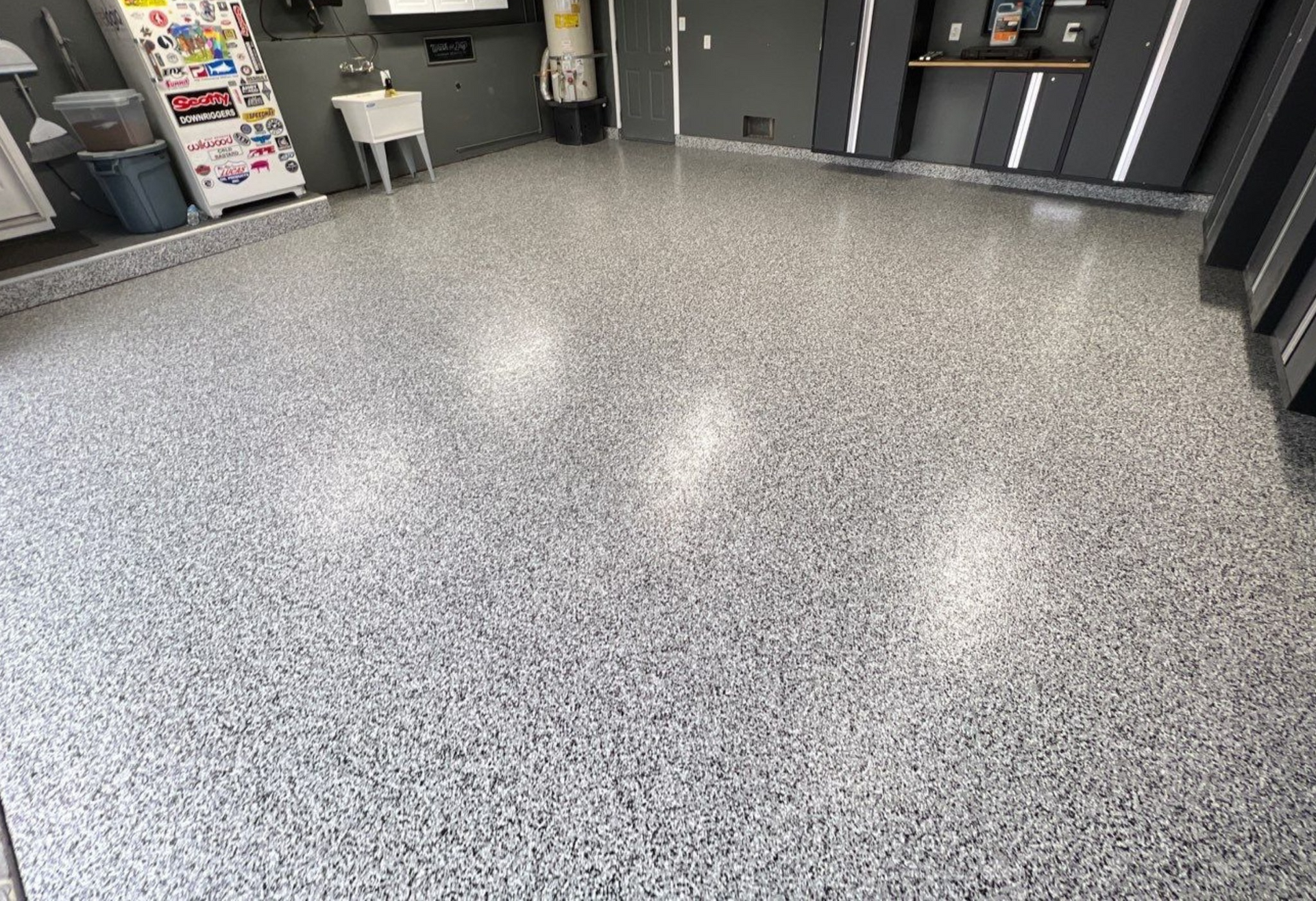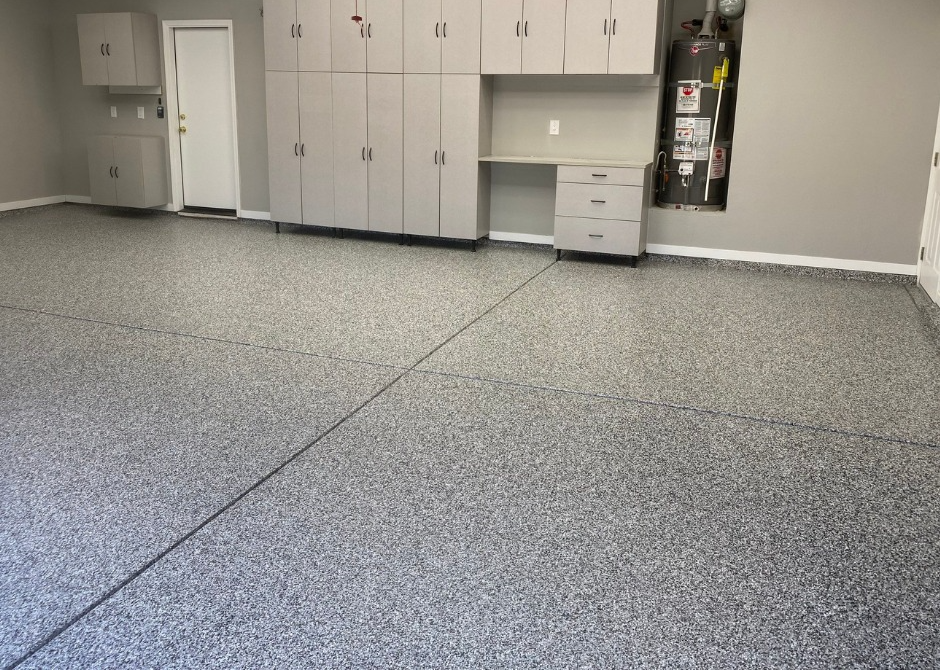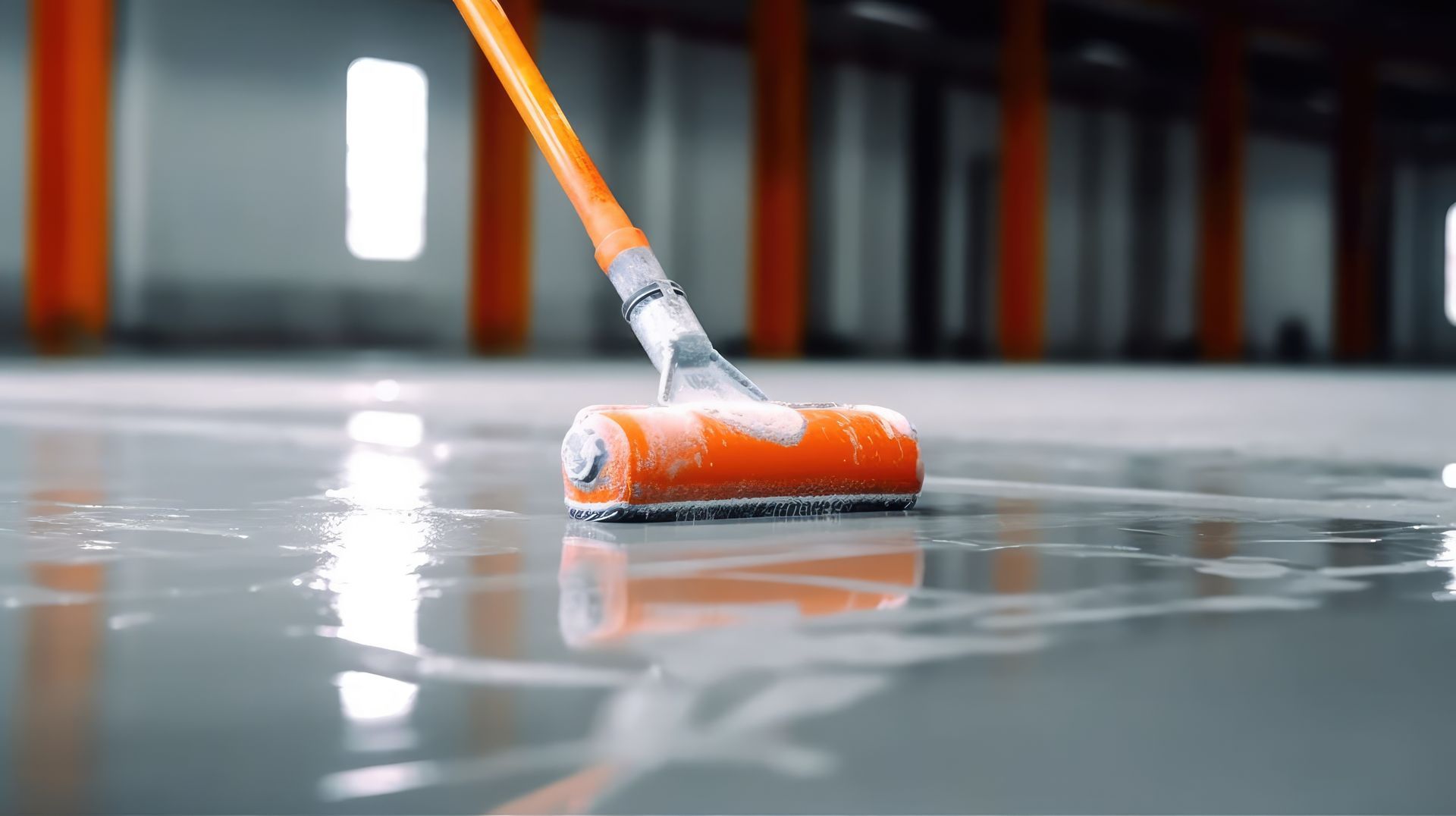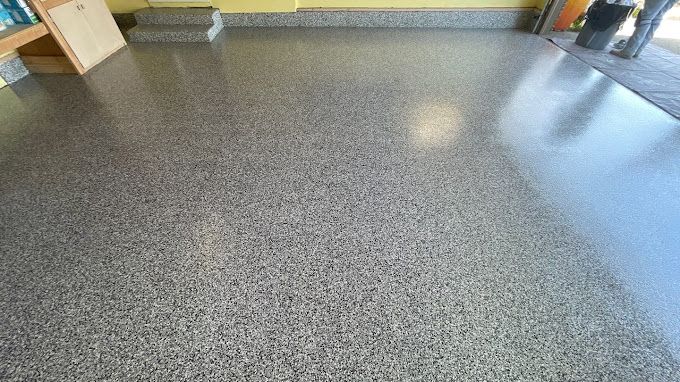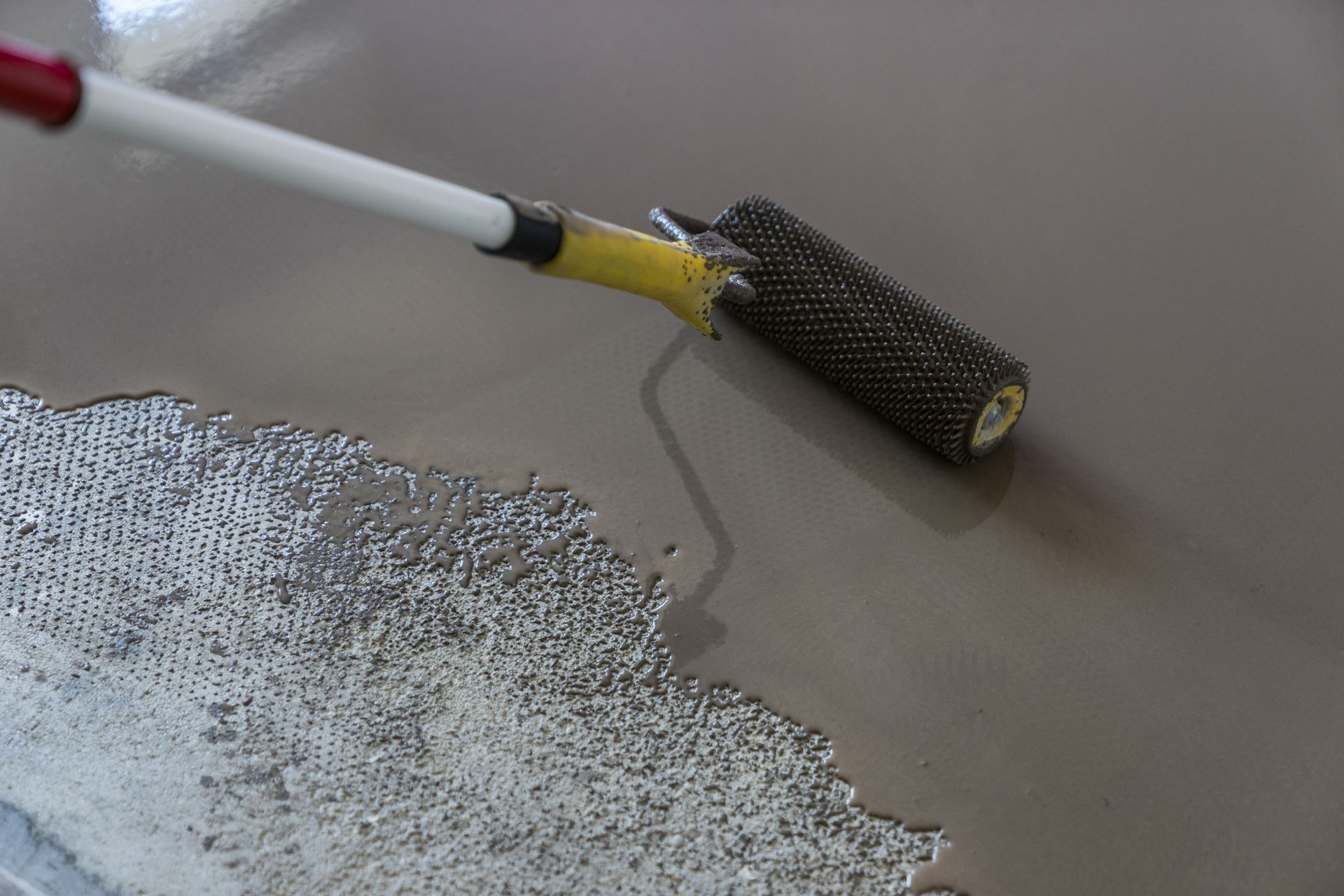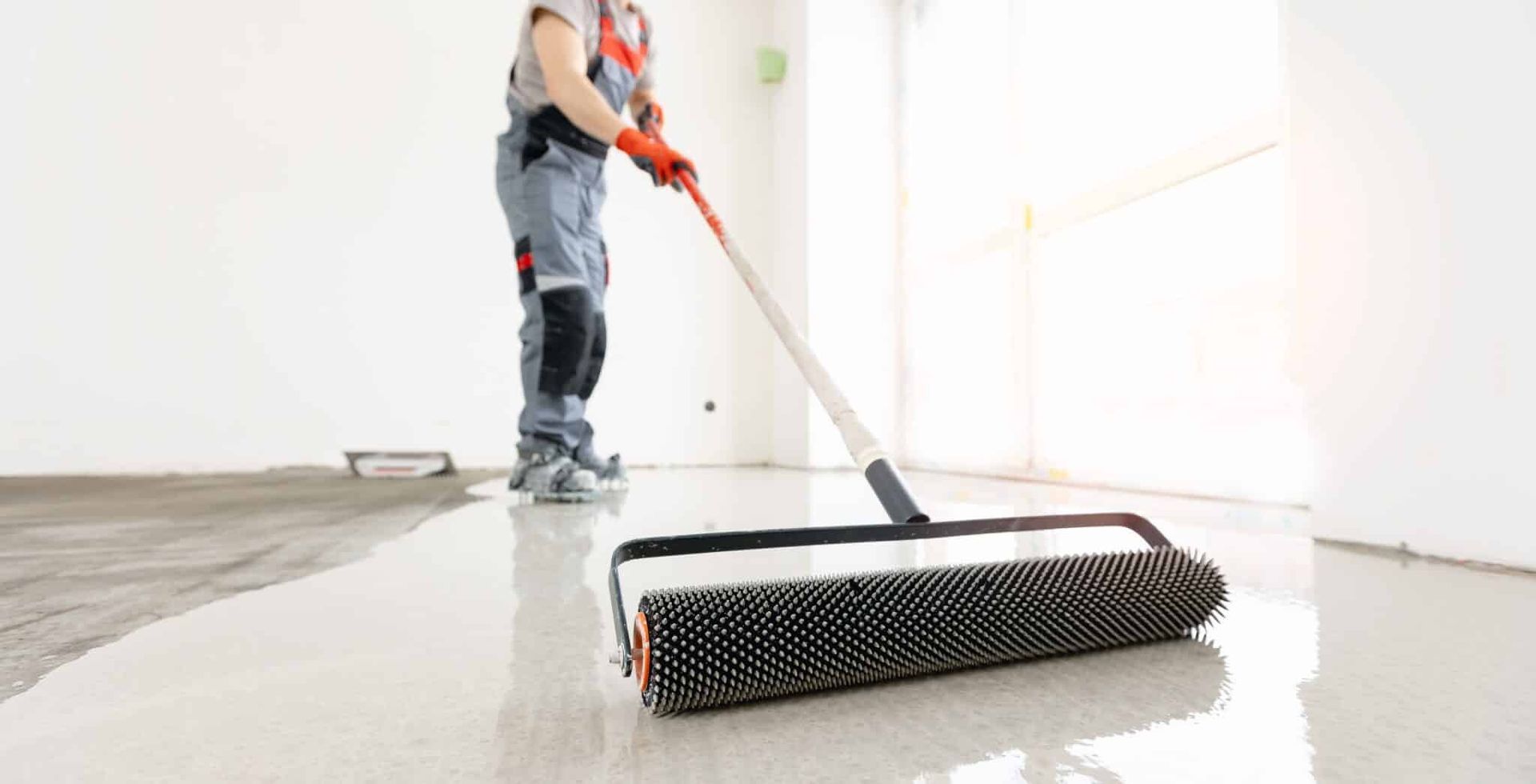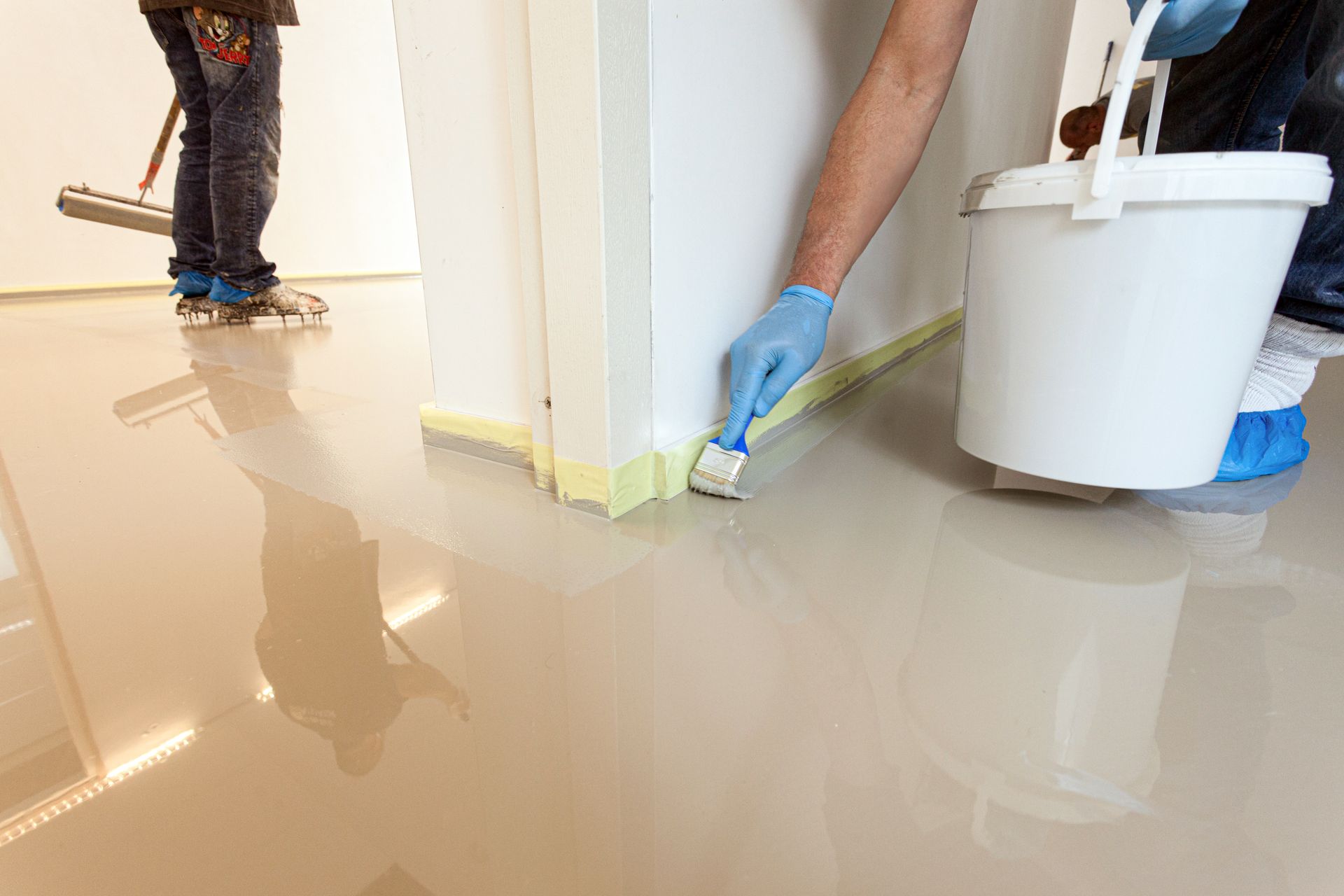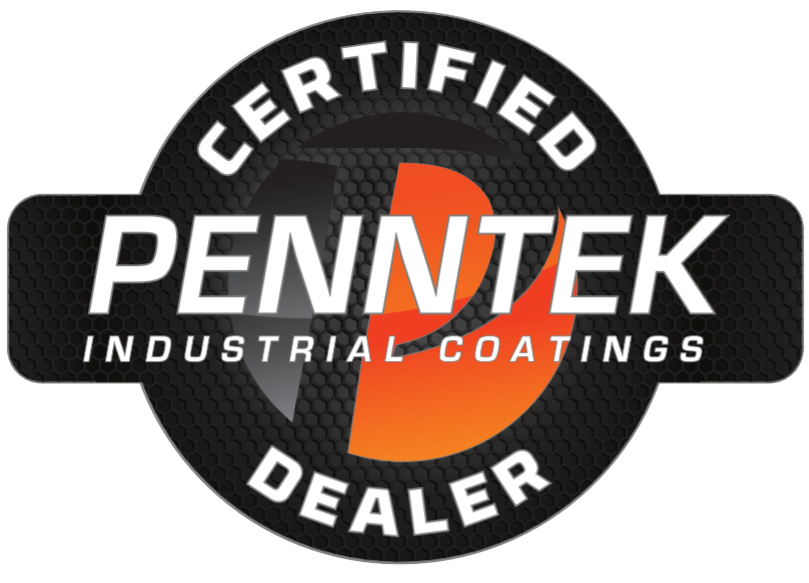Why Choose Polyurea Over Epoxy for Your Flooring Needs
When it comes to choosing a floor coating, there are many options to consider. Tile, wood, concrete, and vinyl floors all have their benefits in terms of aesthetics, durability, and cost.
However, epoxy and polyurea have emerged as two of the most popular industrial floor coatings thanks to their protective properties and modern, polished look.
Epoxy and polyurea coatings are both made from a chemical reaction between resin and hardener components. The resulting material is a
plastic-like coating that can be tinted and polished.
Epoxy has been used for decades to protect garage floors, basements, warehouses, and factories.
Polyurea, on the other hand, is a newer technology that offers faster cure times and greater durability compared to epoxy. Both provide an attractive, seamless flooring solution able to withstand heavy foot traffic, harsh chemicals, and temperature swings.
When evaluating the best floor coating for an industrial, commercial, or residential application, epoxy and polyurea emerge as top contenders. Let's take a closer look at how these two materials compare.
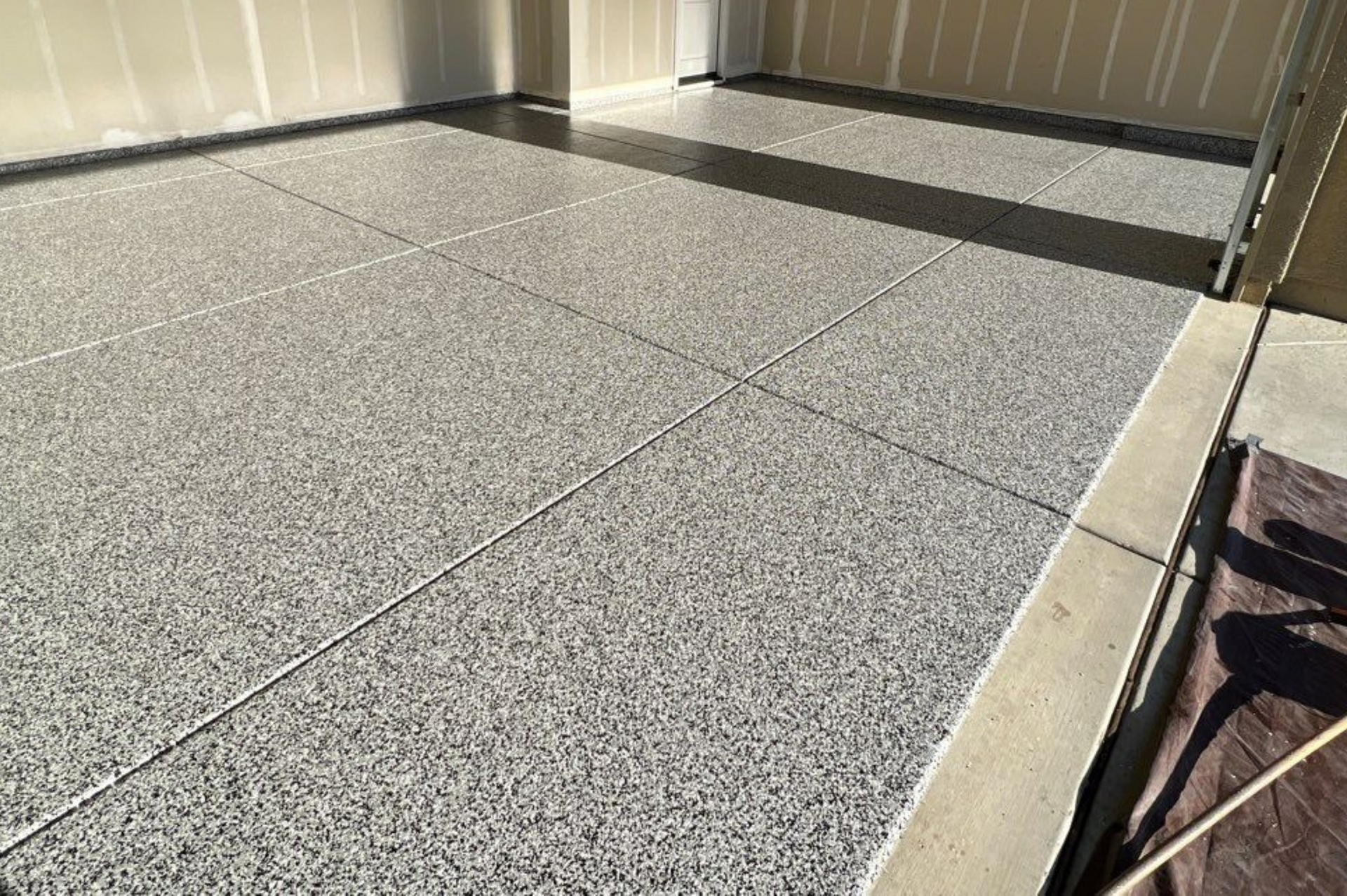
What is Polyurea?
Polyurea is a type of elastomeric polymer coating that is made up of two reactive components: an isocyanate and a resin blend. When these components are mixed together, they undergo a chemical reaction and rapidly cure into a seamless, durable coating.
Polyurea coatings are usually applied using a specialized two-component spray equipment that accurately mixes and sprays the material onto the surface. The isocyanate and resin components are kept separate until they reach the spray tip, where they combine immediately before being atomized.
This spray-on application allows the polyurea to conform to the shape of the surface, even if it has curves or hard-to-reach areas. Polyurea cures very quickly, forming a fully set coating within seconds to minutes after application.
What is Epoxy?
Epoxy is a two-part thermoset polymer commonly used as a floor coating. It consists of an epoxy resin that is mixed with a polyamine hardener before application. When combined, the resin and hardener undergo a chemical reaction known as cross-linking, which cures the epoxy into a rigid, protective coating.
Epoxy floor coatings are valued for their high durability, chemical resistance, and ability to withstand heavy loads. Typical applications of epoxy flooring include:
- Garages and workshops - The hardened surface resists oils, grease, and solvent spills from vehicles. Epoxy creates an attractive, easy-to-clean floor.
- Warehouses and factories - The heavy-duty performance of epoxy makes it ideal for industrial settings. Forklifts and heavy equipment won't damage an epoxy floor.
- Commercial kitchens - Epoxy provides a seamless, non-porous covering that prevents bacteria growth and stands up to hot grease, corrosive cleaners, and high traffic.
- Healthcare facilities - Sanitary epoxy floors are essential in hospitals, clinics, and labs. The coating prevents liquids from absorbing into the concrete.
- Retail showrooms - Decorative epoxy with color flakes or quartz can create an appealing floor for stores and showrooms.
Epoxy flooring provides excellent protection and aesthetics for these demanding environments. However, epoxy's limitations are slower cure times, less flexibility, and reduced UV stability compared to polyurea coatings.
What Is More Durable: Polyurea or Epoxy?
Polyurea and epoxy floor coatings both provide durable protection for concrete floors, but polyurea is generally the more robust and long-lasting option.
Polyurea can last over 20 years with proper maintenance and reapplication, while epoxy coatings tend to last 10-15 years before needing replacement. The molecular structure of polyurea allows it to better withstand impacts, abrasion, and chemical exposure that deteriorate floor coatings over time.
Polyurea has superior
resistance to corrosive substances like gasoline, oils, cleaning agents, and other chemicals that can stain or degrade epoxy floors. The tight molecular bonding of polyurea also makes it highly impervious to moisture absorption.
Additionally, polyurea is more resistant to UV radiation and does not become brittle or fade when exposed to sunlight over years of use. Epoxy floors tend to yellow, chalk, and lose their glossy sheen much faster under UV exposure. This makes polyurea a better choice for outdoor applications or floors with ample natural light.
All of these make polyurea good against wear, chemical damage, and UV degradation.
What Has The Longer Curing Time: Polyurea or Epoxy?
Polyurea has a fast cure time compared to epoxy coatings. Polyurea can fully cure in as little as 15-30 minutes, allowing the coated surface to be put back into service almost immediately. The rapid curing is possible due to the fast chemical reaction when the polyurea components are mixed.
Epoxy, on the other hand, requires a significantly longer curing time. Most epoxy floor coatings take 16-72 hours to fully cure before the surface can be used again. This is because epoxy cures through a slower chemical cross-linking process. The curing time can be reduced by using specialized quick-set epoxies, but even those require several hours before returning the floor to service.
The more rapid curing of polyurea makes it ideal for applications where minimum downtime is critical. With epoxy, a facility would experience much longer periods where the floor cannot be used during application and curing. Polyurea's fast turnaround allows floors to be restored to full operation much sooner.
Our Cost Comparison of Polyurea or Epoxy
| Polyurea | Epoxy | |
|---|---|---|
| Initial Material Cost | Higher than Epoxy | Lower than Polyurea |
| Durability | Extremely resistant to wear, abrasion, impacts, and chemicals | Less resistant compared to Polyurea |
| Service Life | Lasts 7-12 years before needing reapplication | Lasts 3-5 years before needing reapplication |
| Reapplication Frequency | Less frequent, every 7-12 years | More frequent, every 3-5 years |
| Maintenance Costs | Lower due to durability and longevity | Higher due to more frequent repairs and touch-ups |
| UV Resistance | Highly resistant to UV fading | Less resistant, may fade or yellow |
| Chemical Resistance | High resistance, suitable for harsh environments | Lower resistance, more susceptible to damage |
| Total Cost of Ownership | Lower over the flooring's lifetime | Higher due to frequent recoating and maintenance |
| Investment Value | Better long-term investment, cost-effective | Less cost-effective over time |
Polyurea vs Epoxy in Terms of UV and Temperature Stability
One of the biggest advantages of polyurea over epoxy is its superior stability when exposed to UV light and temperature fluctuations. Unlike epoxy, polyurea coatings are highly resistant to fading, discoloration, and yellowing when exposed to sunlight over time. The advanced chemistry of polyurea makes it more colorfast and UV-stable compared to traditional epoxy floor coatings.
Polyurea also withstands temperature changes incredibly well, expanding and contracting with the floor as temperatures rise or fall. Epoxy tends to get more brittle and prone to cracking as temperatures drop. But polyurea remains flexible even in frigid conditions, resisting cracks down to -40°F. This flexibility and crack resistance also makes polyurea coatings ideal for exterior applications in cold climates. The material can readily handle freeze-thaw cycles throughout the year.
Flexibility
Polyurea floor coatings are known for their ability to flex and stretch without cracking or peeling. The polymer chains that make up polyurea have an elastic quality that allows the material to bend and return to its original shape without damage. This flexibility makes polyurea an ideal flooring choice for surfaces that experience movement, vibration, or changes in temperature that can stress and crack more rigid coatings like epoxy.
Polyurea coatings can bridge cracks up to 1/8 inch, moving with the concrete substrate as it expands and contracts. Areas with variable or extreme temperatures see a lot of benefit from polyurea's flexibility. Warehouses or aircraft hangars may go from very cold to hot conditions as large doors open and close. The elasticity of the polyurea allows it to withstand this movement without cracking or peeling like more brittle epoxy. Polyurea's ability to flex and stretch while maintaining its adhesion is a key advantage over other rigid floor coatings.
Safety Features
When it comes to flooring, safety should be a top priority.
Polyurea coatings offer some key advantages over epoxy in safety:
Antimicrobial Properties
Polyurea contains properties that make it naturally resistant to microbes like bacteria and fungi. This antimicrobial feature helps prevent the growth and spread of dangerous organisms on the floor's surface. Polyurea floors are ideal for environments like hospitals, food processing plants, and other spaces where controlling contamination is crucial.
Slip Resistance
Properly applied
polyurea floor coatings offer excellent traction, even when wet. The textured finish provides grip to minimize slips and falls. Epoxy floors tend to get more slippery when wet or contaminated. Polyurea's intrinsic slip resistance makes it suitable for industrial settings prone to spills as well as residential spaces like pool decks. The grip and traction enhance safety for workers, residents, and visitors.
Ready to Upgrade Your Floors?
Choose Polyurea for unmatched durability and beauty. At Top Coat Concrete Coatings, we specialize in applying high-performance Polyurea coatings that are 4x stronger than Epoxy, UV stable, and slip-resistant. Whether it's for your home, business, or industrial space, our Polyurea coatings offer the ultimate protection and style.
